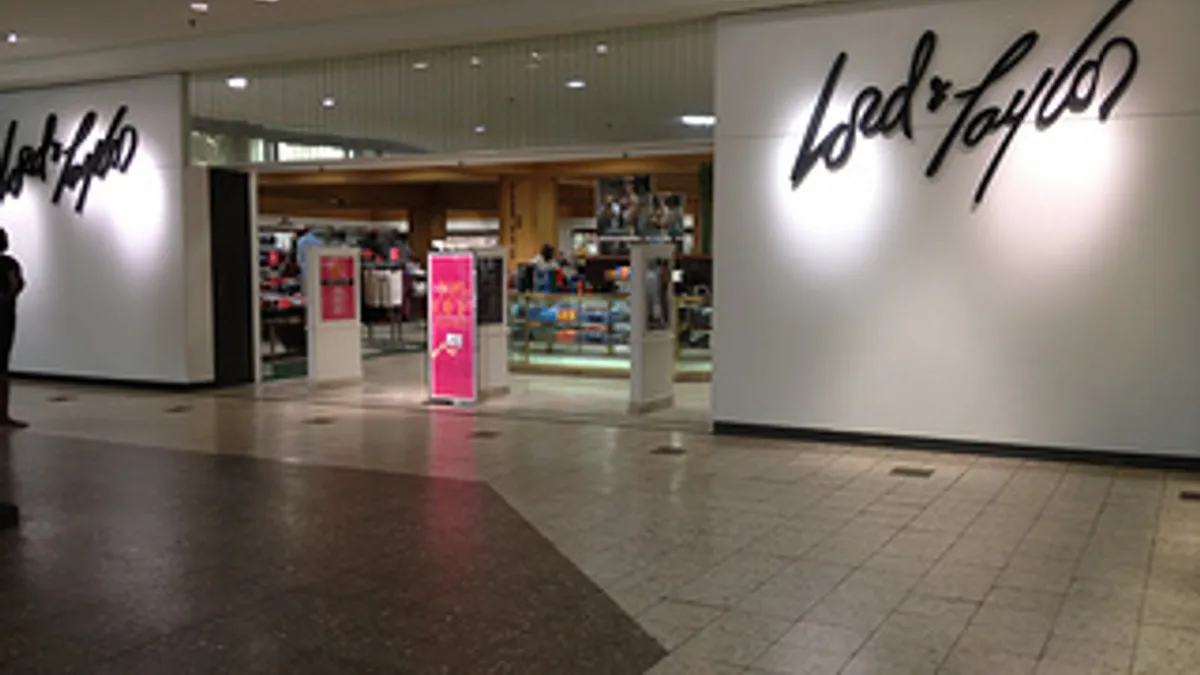Dive Brief:
- Lord & Taylor agreed to refrain from misrepresenting that paid advertising is from an independent or objective source as part of a settlement with the Federal Trade Commission (FTC).
- The complaint stems from a campaign from last March that included sponsored content in Nylon, an online publication, as well as compensated posts from 50 social media influencers on Instagram. None of the paid ads were properly identified as such.
- The settlement is the first native advertising case for the FTC after releasing guidelines on the format last December, guidelines that the Interactive Advertising Bureau (IAB) immediately expressed concerns over.
Dive Insight:
“Lord & Taylor needs to be straight with consumers in its online marketing campaigns,” Jessica Rich, director of the FTC’s Bureau of Consumer Protection, said in a statement. “Consumers have the right to know when they’re looking at paid advertising.”
The statement outlined the scope of the settlement: “The proposed consent order settling the FTC’s complaint prohibits Lord & Taylor from misrepresenting that paid commercial advertising is from an independent or objective source. It also prohibits the company from misrepresenting that any endorser is an independent or ordinary consumer, and requires the company to disclose any unexpected material connection between itself and any influencer or endorser. Finally, it establishes a monitoring and review program for the company’s endorsement campaigns.”
The FTC’s guidelines lay out how marketers and publishers should handle making sponsored content clearly recognizable as separate from editorial content. The guidelines ended with a statement that implied the FTC might seek actual regulations with enforcement from the agency if the native ad industry failed to properly self-regulate.
Ted Murphy, CEO of IZEA, told Marketing Dive, "The Lord & Taylor settlement is a huge step forward for the integrity of the Sponsored Social industry. It’s critical that both brands and influencers disclose sponsored campaigns and do not deceive consumers with sponsored posts posed as organic content."
He went on to explain that in IZEA's 2015 State of Sponsored study, they found that only 8% of marketers reported being fully aware or fully understanding the FTC rules. "When marketers and agencies adhere to transparency, it protects the creators’ and brands’ credibility with their audiences," Murphy said.
Ron Urbach, chairman of law firm Davis & Gilbert LLP, told Marketing Dive the settlement pads the argument that, "In a world of integrated marketing and real time decision making, advertisers need to build the systems and processes to ensure that native advertising is legally compliant."
Will the decision mark a decline in the use of native ads? Urbach predicted otherwise, saying we'd see "more, in fact, much more. Will we see more FTC actions in this area? Absolutely. Will those actions also involve agencies and those who work with the advertiser? Yes."










